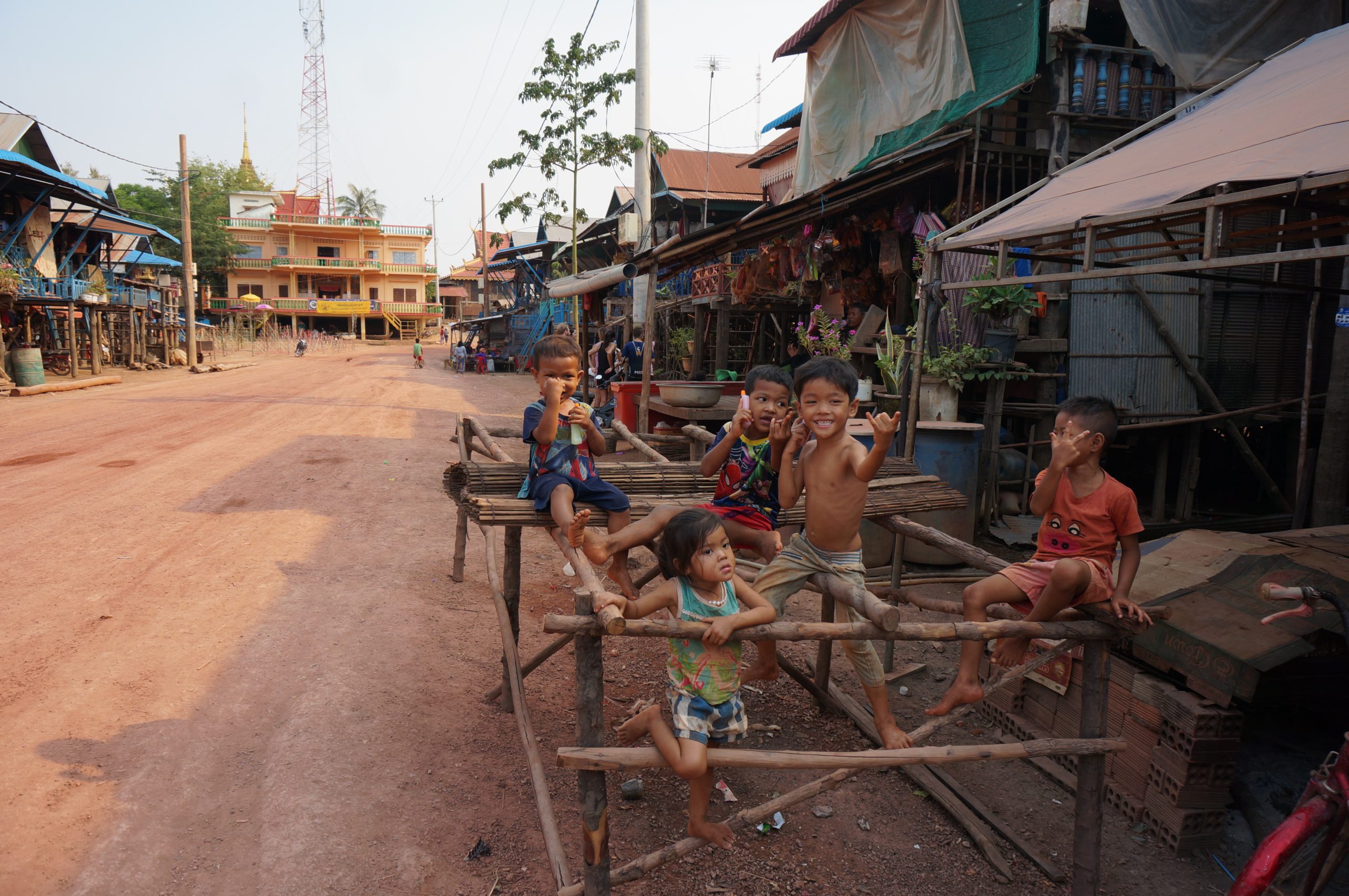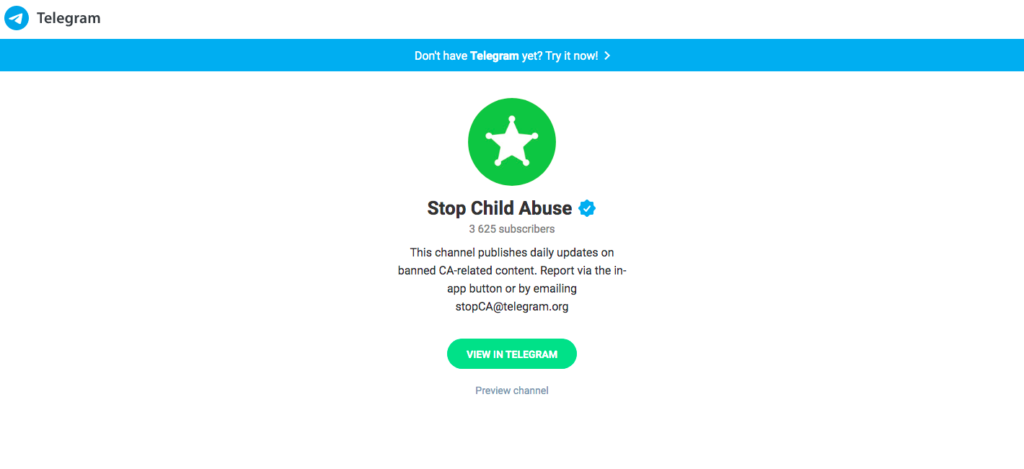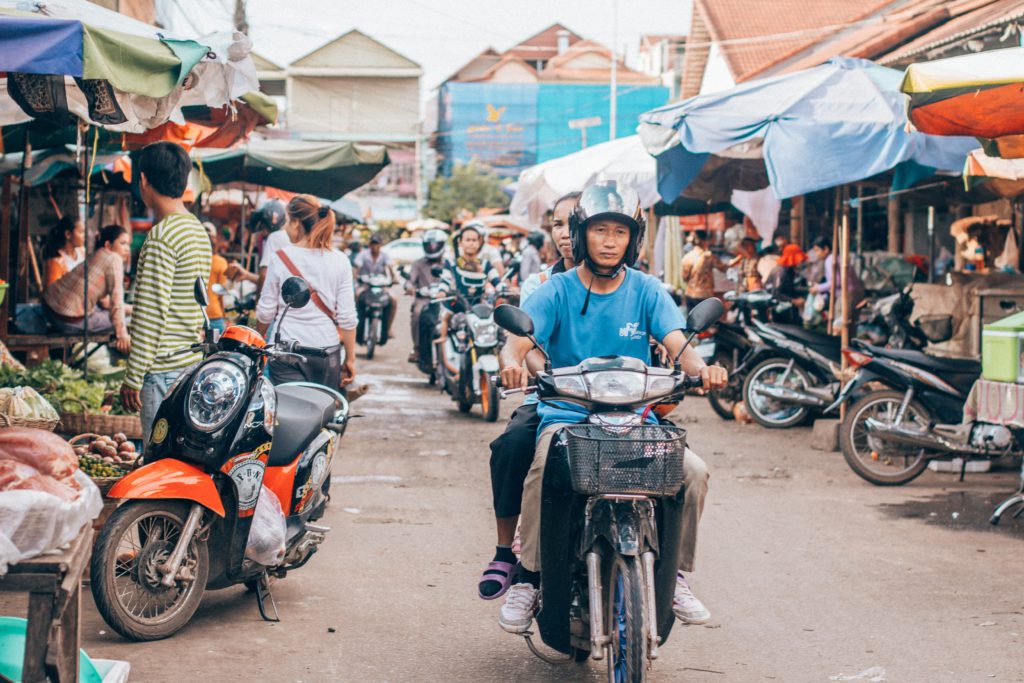As an elementary student in Cambodia, Nita was lonely and wanted to make new friends through Facebook. One day, a young man with a falsified social media profile sent her a request on Facebook, and their relationship went from an online friendship to an episode inflicting long-term trauma on Nita. The man composed sweet-sounding messages sent from his home in Turkey. He charmed Nita and won her heart. Soon, he asked her to send naked photos of herself and demanded money from her in what became a pattern of abuse.
By the time she was 13, Nita was threatened and coerced into performing sexual acts in front of a webcam by men on the internet. Every stomach-churning moment she experienced brought her great shame, and Nita felt like there was no one she could confide in. Even when she decided to open up to her parents about everything she had gone through, her family blamed her right away. She attempted suicide a few times, landing in the hospital after each attempt.
Rising internet usage and mobile phone ownership have greatly improved the standard of life in Southeast Asia, but with that comes a dark side—an internet connection could be a useful conduit to infinite information, but it could also be a line between unwitting minors and predators who could be anywhere in the world. Children from Thailand, Cambodia, and the Philippines are exploited and pressured into taking pornographic photographs of themselves or conducting abusive acts on livestreams. It is a particularly serious issue in Cambodia, which has long been labeled by the media as “a haven for pedophiles.”

Even though Cambodia’s reputation has improved in recent years, following the 2008 adoption of a law aimed at eliminating human trafficking and sexual exploitation, including a set of sexual offenses against children, that abuse still exists online, according to Seila Samleang, executive director of Action Pour Les Enfants (APLE), a group whose mandate is to protect children.
While the country’s victim-blaming culture prevents young victims like Nita from seeking help, the worrying trend of online child sexual abuse also points to a deep-rooted issue—encrypted communications apps like Telegram, WhatsApp, and Facebook Messenger serve as the entry point for pedophiles to access sexually explicit content involving minors.
In Cambodia, APLE recorded 30 cases where young girls and women were blackmailed into sending pornographic pictures on the internet in the first quarter this year, Phnom Penh Post reported on March 28. The number of cases is set to outpace 2020’s 65 cases over a full year, as Telegram has emerged as a hotspot for distributing materials related to child sexual abuse since the onset of coronavirus.
“Most of the child sexual exploitation communities usually operate on the dark web, but social media and digital communications applications like Facebook, WhatsApp, Telegram, and Skype are the first entry point,” Samleang said, adding that private chat groups in encrypted apps exist to sell pornographic pictures and videos of both children and adults.
Secure communication apps, including Telegram, are usually equipped with both a public and encrypted side. Local authorities and tech platforms are able to view and track content that is disseminated publicly, but closed groups where administrators vet new members operate in their own walled garden, keeping illegal content away from the eyes of investigators.
“Though sex offenders use these channels for offending purposes, actual sexual abuse may take place throughout all these channels, or offline through physical contact with the victim,” Samleang said.
Telegram fails to police content
Earlier this year, Samleang and his team found out that some private chat rooms on Telegram are being used to advertise and sell pornographic content, some of which involved minors.

The groups act as marketplaces for pornographic materials, where offenders can preview the content before paying for full access, which is usually stored in shared folders on Google Drive or Dropbox. Each batch is sold for USD 30 to USD 100, according to Samleang. The trade is easy; it takes just a few clicks to grant access after payment comes through.
Here’s the kicker: the groups operate in a legally gray area. Cambodia’s Law on Suppression of Human Trafficking and Sexual Exploitation, passed in 2008, forbids distributing, selling, leasing, displaying, projecting, or presenting child pornography, but it only applies to the “public space.”
Telegram’s content moderation policy has similar holes. The platform adopts a “zero tolerance” approach towards the abuse of minors, but its moderators can only review and remove publicly available content that breaches Telegram’s terms of services, according to a company spokesperson. That means images and videos that were made by harming minors can still be circulated in private groups and technically do not breach Telegram’s rules.
There’s more: undercover investigations in sexual abuse cases are forbidden under Cambodian law, so it is extremely difficult to gather proof that leads to the prosecution of abusers. Even organizations like APLE can only learn about the groups via victims or sources who are familiar with the operations.
While APLE has limited information regarding online sexual abuse operation conducted via Telegram, the Cambodia National Council for Children highlighted in a 2019 report that various payment systems in Southeast Asia are being exploited by pedophiles—services such as Western Union, Wing, cryptocurrency exchanges, and other anonymous forms of money transfers have been used to compensate the perpetrators of abuse.
“We used to report cases through the Telegram app on multiple occasions. The most recent one took place early this year, but there was no action and response. I continued to see videos of the child abuse on Telegram,” said Samleang. “There should be a corporate contact for cooperation with Telegram, and the platform should actually take swift actions to remove those individuals. But it’s just not happening yet.”
Telegram did not comment on the specific situation in Cambodia or any follow-up actions by the company regarding cases in specific countries when asked by KrASIA. Samleang expects the situation to become worse in Cambodia as the problems have deeper roots. Tech platforms are just one element in the equation.
A new cyber unit, but few changes
Nita decided to seek help through APLE and filed an official complaint with the police. She still lives with the trauma of the abuse. Investigations, prosecution, the removal of illegal online content, and the protection of child victims have proved to be particularly challenging for local police.
There is a significant gap within the justice system that hinders the victims from seeking justice. According to a report on online child sexual exploitation conducted by the Cambodia National Council for Children in 2019, there is an array of barriers within the system, including an insufficient understanding of modern technologies and a lack of knowledge related to information and communication technology (ICT).
The report added that deficient resources to investigate at the community level, a dearth of connections to international technical expertise, and an over-reliance on traditional, physical methods of investigation are ineffective against digital crimes.
Nita’s abuser in Turkey has faced no consequences. The young woman in Cambodia, on the other hand, lives with the fear of being recognized from compromising photographs and videos that are still circulating online.
“We are seeing gaps within law enforcement to prosecute online offenders. For offenses related to child pornography, proof of distribution or production is needed because possession of the child sexual abuse material is not yet illegal, while grooming is not a crime either. We only could substantiate claims through the evidence for any kind of actual abuse or exploitation of children,” Samleang explained, adding that there is currently no mechanism for reporting crimes anonymously.

Although APLE offers a 24/7 hotline service for victims to file reports, Samleang suspects that there are many more cases that have been buried, as some people may hesitate to bring their situations to light.
The Child Protection Unit (CPU), founded in 2013, is a nonprofit organization that has helped and supported crackdowns on child abuse throughout the years. Last January, the group formed a task force with the Internet Crimes Against Children (ICAC) that looks to address online child abuse in Cambodia.
In 2019, CPU responded to 274 online child abuse cases, with the arrest rate as high as 87%, according to a report by Southeast Asia Globe. Although the report did not offer a breakdown on the types of online child abuse, CPU’s operations director James McCabe told the publication that the data mirrors a strong signal to the predators: “If you rape or harm a child, you are going to get arrested. You will be prosecuted. Which is where we need to be.”
Crimefighters from the US and Australia have also stepped up to offer training to the Cambodian police to investigate online child sexual abuse crime, per Reuters. Though much has been done to combat the crime, Cambodia still lacks a comprehensive cybercrime law to protect minors.
Cambodian lawmakers have drafted legislation to attempt to address all manner of cybercrime, yet this is a slipper slope. Human Rights Watch obtained a copy of the confidential draft and said it “threatens increased surveillance of internet users, privacy rights, and free speech online.” HRW did not mention whether the bill, which has yet to be finalized, specifically covers cybercrimes related to sexual exploitation.
Nita’s case is technically closed, but that hardly means she was able to attain a resolution. Now, Nita lives with the mental scars left after she experienced repeated trauma. There are moments when she feels like her life cannot move forward from when the sweet talk from her Turkish “friend” quickly turned into a lingering nightmare.
During the pandemic, many minors in Cambodia and around the globe were stuck at home and had just one way to connect with the outside world—their smartphones. How many received friend requests from strangers that seemed harmless at first?
In light of the challenges in investigating, prosecuting, and legislating against these crimes, education may be the only way out. “We raise awareness of the online risks, educate children on how to identify risks and stay safe when online. We provide parents, practitioners, and the public with knowledge on online abuse and access to the reporting mechanism to anonymously report online abuse to the APLE hotline that is linked to law enforcement,” said Samleang.
“If confirmed, reports will be sent to law enforcement for investigation and prosecution, internet service providers or content hosting sites for takedowns, while we also support affected children with psychosocial and legal services,” he added. The child protection group, together with UNICEF Cambodia, is set to run a series of online and offline campaigns to raise the awareness of online child sexual exploitation and public reporting, aiming to reach around 215,600 children, teenagers, parents, and community members.


